Lawsuit filed Arizona Fire Department in Kentucky!
A Kentucky truck driver has filed suit in US District Court for the Eastern District of Kentucky against an Arizona fire department, an Arizona truck stop, an Arizona hospital and a bank over an incident that occurred in Tolleson, Arizona on June 24, 2020.
lshimwe Grace filed suit today naming the Tolleson Fire Department, Loves Truck Stop, Abrazo West Campus, and PNC bank. The suit was filed pro se (without counsel) and as a result lacks the formality we normally see with complaints.
Here is a copy of the complaint:
/here-is-a-copy-of-the-complaint-kentucky-arizona-fire-department.pdf
The factual allegations are as follows:
- On June 24, I was at Loves truck stop in Tolleson AZ and they refused to serve me, possibly because of my gender, color and race.
- I asked for a shower and they refused to give it to me, without an explanation despite the fact that showers were always an essential service for truck drivers throughout the pandemic.
- I waited for at least 6 hours, checking back in every hour for a shower because I assumed that they were either short on staff or experiencing technical difficulties.
- However, that was not the case. Instead, the manager assumed that I had no business requesting a shower sos/he called the ambulance on me without telling me anything.
- The ambulance came, with at least 6 officers and I explained to them that all I wanted was a shower, and if they do not want to serve me, they should let me go in peace to get a shower elsewhere.
- But, the ambulance refused to let me go. Instead, the officers grabbed me and took me to the hospital against my will.
- I protested peacefully the whole time, asking them to let me go because there has been misunderstandings, but they didn’t believe me.
- When we got to the hospital, I was taken to ER and several nurses decided to anesthetize me.
- None of them introduced themselves to me, and they didn’t tell me why they decided to poke needles in me.
- I was completely conscious and cooperative but none of them asked me any relevant questions aside from “where are you?”.
- Unfortunately, I had no good answer for that question because I had no clue of the exact place, or the name of the hospital that the ambulance took me to.
- I also do not know what the officers did to my belongings because I was unable to find them after the incident.
- I also don’t know what the hospital staff did to me while I was unconscious.
- A few weeks after that, I noticed transactions on my debit card that I did not authorize. I went to dispute them at my bank and they were all denied because they were “valid on line transactions”.
- As far as I know, anyone could have grabbed my wallet and used my sensitive information.
The suit seeks to recoup “cash back”, but the specific legal theories and damages are not clearly laid out. While most courts tend to grant some degree of latitude to pro se litigants, this case is likely going to meet with an early dismissal. So what is the big deal?
Cases like this give me pause to ponder: how are we doing on our incident/patient care reports? Are our personnel properly documenting incidents? Does that include incidents that may appear to be mundane when they happen, such that in the event we are hauled into court months after the fact, we have enough detail and documentation to justify our decision-making?
If you think you are all set, then humor me. Where were you on June 24, 2020? Do you recall enough detail about the incidents you responded to that day such that you could defend yourself from allegations like this? Take the time to research the incidents you actually responded to on June 24 (or the closest day to June 24 that you worked). Without looking at the incident reports, how much do you recall about what happened? Then review the reports. The results may surprise you.
My recollection of what occurred several months ago is weak at best. Without a detailed factual report I am not going to remember the important details such as what caused me to determine that a patient lacked the capacity to decline aid; what the patient said or did; what bystanders said or did; what I said or did in response what the patient or bystanders said or did; what caused me to decide to transport the patient against their will; did I use force to restrain the patient; and what was done with their possessions.
Tough questions for sure, but the type we often don’t ask ourselves. While lshimwe Grace’s lawsuit is not likely to go very far, think about what could happen if an attorney were to become involved. Let me add – when I prepare an incident report – I am writing the report to such an attorney. That attorney is my audience whenever I prepare a report. I am giving him or her everything I would need to justify my actions.
-

Loading Up The Huge Kenworth At The End of Trucki...
08:03 -
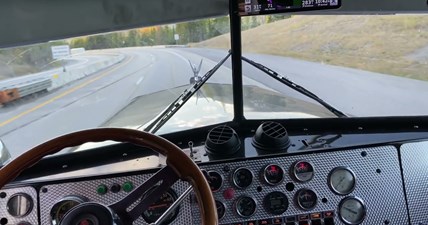
Kenworth W900A long hood big cam Cummins 8 straig...
01:54 -

Kenworth K100 Cab Over Truck Walkaround Exterior ...
05:16 -
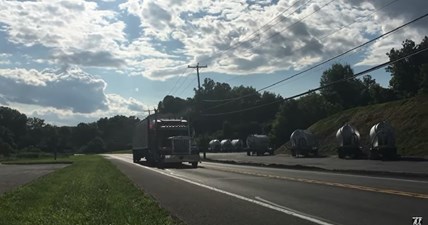
Jake Brake Compilation
21:50 -
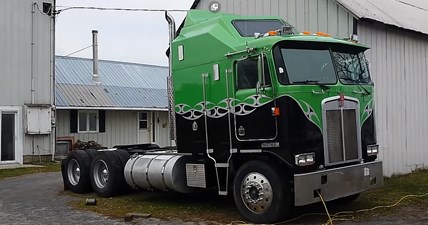
BadAss Cabovers,Jake Brake,Custom Old Trucks
10:07 -
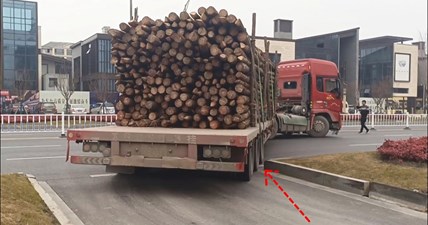
The truck driver backs up on the city road. Super...
04:24
-
02:56
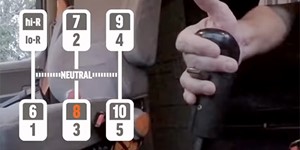
How drive a 10 speed Truck
-
00:41
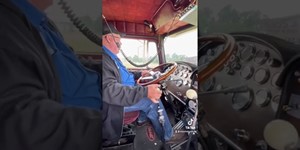
Hank Cosper Driving His 359 Peterbilt ...
-
16:13
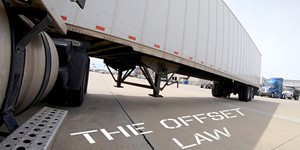
Truck Backing Ep1 The Offset Law
-
14:26

World Longest Trucks - Turning Into A ...
-
08:05
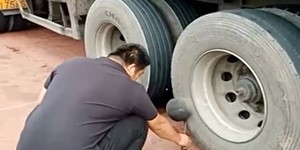
Extreme Truck Drivers - Stupid Truck D...
-
01:58
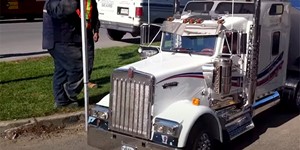
Mini Kenworth Truck On The Street
-
06:25
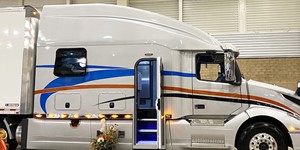
$360K Volvo VNL Expedite Truck with Ki...
-
01:57

Peterbilt log truck coming off steep c...
-
03:01

2,000HP Tripple Turbo C16 PDI Peterbil...
